Find a Critter
Did you find an injured or orphaned animal?
Shasta Wildlife Rescue & Rehabilitation, Inc. is not able to rescue, rehabilitate or take possession of BEARS, BOBCATS, COYOTES OR MOUNTAIN LIONS. See IF YOU CARE PAGE for who to contact.
BEFORE you rescue an animal that appears to be in distress, Shasta Wildlife respectfully requests that you make certain the animal you are helping is really in need of rescuing. Many of the animals we have received in past years had been exhibiting normal behavior that was perceived as distressful. Please take a moment to visit our If You Care page BEFORE making a decision.
Pets and feral cats live in close proximity to wildlife in our area. Although they are debilitating to wildlife, please do not try to capture them for their “safety”. Leaving them for their parents to raise is always the best option. You can, however, keep your pets indoors while your back-yard wildlife are in their vulnerable stage.
If you rescued an animal in distress, please put it in a carrier or box with a lid. Do not keep the animal longer than overnight. Do not attempt to give it food or water. Place the animal in a dark, quiet place until you can transport them to a Shasta Wildlife volunteer OR receive assistance from another wildlife organization. Click on IF YOU CARE for additional assistance.
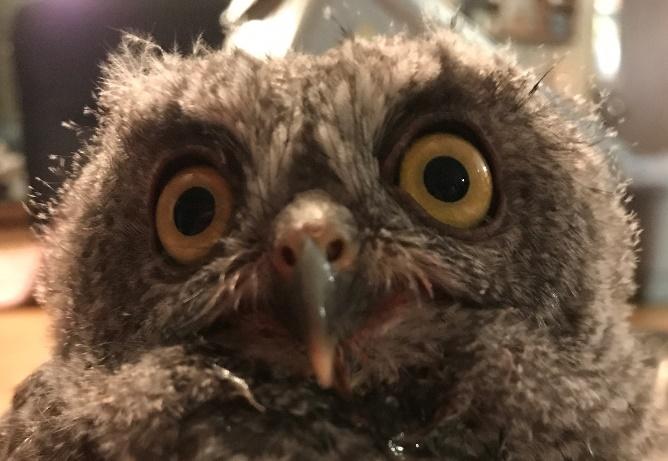
For policy updates and information with regards to the coronavirus please visit our COVID-19 page.
Current Status at the Center
Our Center normally opens in early May for the Baby Bird Season and closes by early September. Due to our Protocols, the public may NOT enter our Center or drop off animals. All intakes must have a phone assessment first to determine our involvement and whether the animals should go to our Center or to a species manager.
While our Center in the Anderson River Park is closed, our phone messages are retrieved and calls are returned every two hours from 8am to 8pm every day (even weekends and holidays)
It is unlawful to attempt rehabilitation yourself. It is also unlawful to keep native wildlife as a pet. Shasta Wildlife holds permits issued through the California Department of Fish and Wildlife and the United States Fish and Wildlife Service.
If you discover an animal in distress on a roadway, please call one of the following:
State HWY/FWY – CalTrans district 2 at 530-225-3426 or CHP Northern Division at 530-242-4300
Shasta County road – Shasta County Public Works at 530-225-5661 or Shasta County Sheriff at 530-245-6000 or Shasta County Animal Control Dispatch at 530-245-6540
Redding City limits – Redding Animal Regulations at 530-245-6065 Anderson Animal Regulations – 530-241-2550 Red Bluff Animal Regulations – 530-527-3439
Please do not put yourself in danger by attempting to rescue a distressed animal on a roadway. Please call one of the agencies listed above RATHER THAN contacting Shasta Wildlife volunteers.
What to do and who to call when you find wildlife in distress?
Birds
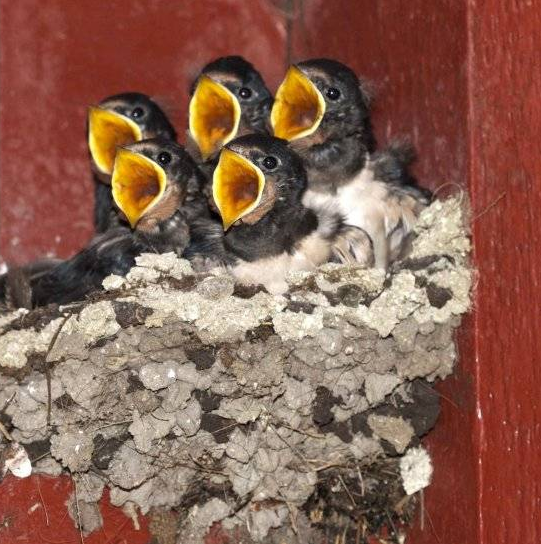
Song Birds
If you find a baby bird on the ground that has little or no feathers, pick them up to see if it they’re cold. If it they are, warm them in your hands while looking for the parents and the nest it may have fallen from. If you see the nest but cannot put them back, you can make a nest with tissue paper in a Tupperware container. Affix it to the tree or another one nearby and place the baby in your nest once it is warmed up (most birds do not have a good sense of smell and will still care for their young if you touch it).
If the bird is feathered they may be a fledgling. At that stage of development, the fledgling hops around on the ground for a few days before taking flight. Please be patient with them and keep your pets indoors during this vulnerable part of their lives.
If the bird is in distress (e.g. cat or dog caught, window strike, orphaned) please call Shasta Wildlife at 530-365-9453.
During our baby bird season (May – August) our Center is normally open from 8am to 8pm. Center operations and hours are currently pending due to COVID-19 precautions. See our COVID-19 page for latest updates.
While our Center is closed (September – April) you can leave a message at 530-365-9453 as calls are monitored every 2 hours during the off-season from 8am to 8pm.
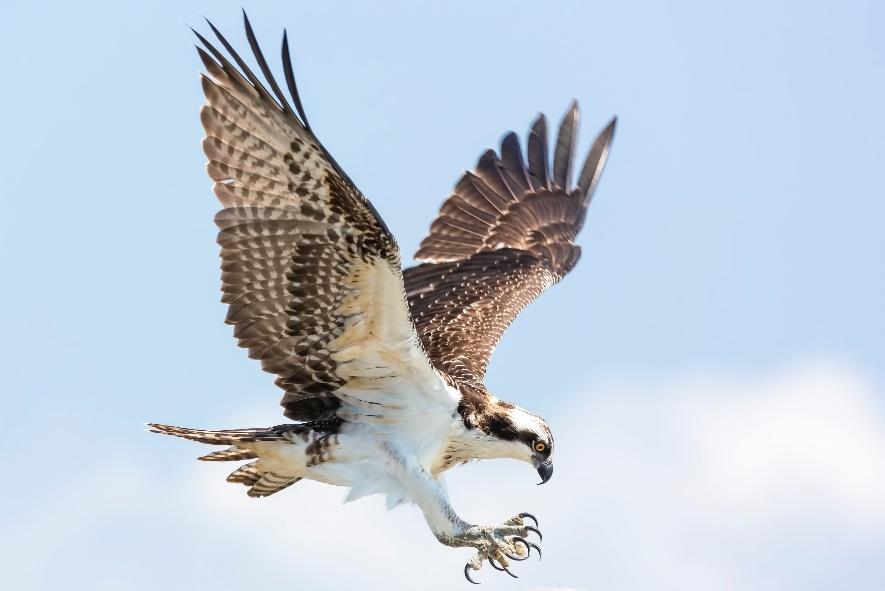
Birds of Prey
Birds of prey, i.e., raptors, are predatory birds that catch and kill their prey with their powerful talons. They include eagles, hawks, owls, falcons, osprey, kites, and harriers.
As adults, these birds are dangerous to handle and capture should only be attempted by those with experience in handling raptors.
Nestling and fledgling found on the ground may not be in distress or orphaned. Some can climb the tree and get back into the nest on their own or the parents feed them while on the ground. If there are no parents and/or the bird is injured, you can place it in a box or crate wearing thick gloves and bring it to our Center during our baby bird season (May – August).
For all raptors (excluding eagles):
Call our Center at 530-365-9453.
During our baby bird season (May – August) our Center is normally open from 8am to 8pm. Center operations and hours are currently pending due to COVID-19 precautions. See our COVID-19 page for latest updates.
While the Center is closed you can leave a message at 530-365-9453 as calls are monitored every 2 hours during the off-season from 8am to 8pm.
If you find an eagle in distress, please call
Defiance Canyon Raptor Rescue 530-474-5803
All other birds of prey – 530-365-9453
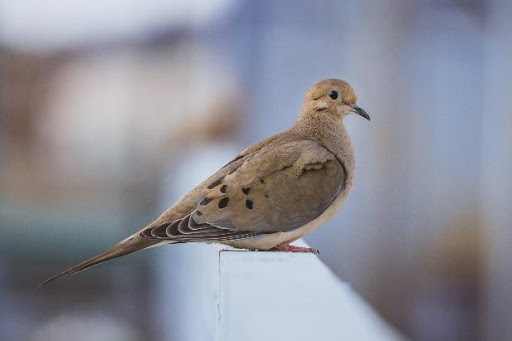
Pigeons/Doves
Pigeons and doves have babies all year long. Shasta Wildlife has committed experts that care for native orphaned nestlings injured native adults as satellite volunteers in their homes. If you find one in distress call:
530 365-WILD (365-9453)
Please be prepared to transport the dove or pigeon to us.
During our baby bird season (May – August) our Center is normally open from 8am to 8pm. Center operations and hours are currently pending due to COVID-19 precautions. See our COVID-19 page for latest updates.
While our Center is closed you can leave a message at 530-365-9453 as calls are monitored every 2 hours during the off-season from 8am to 8pm.
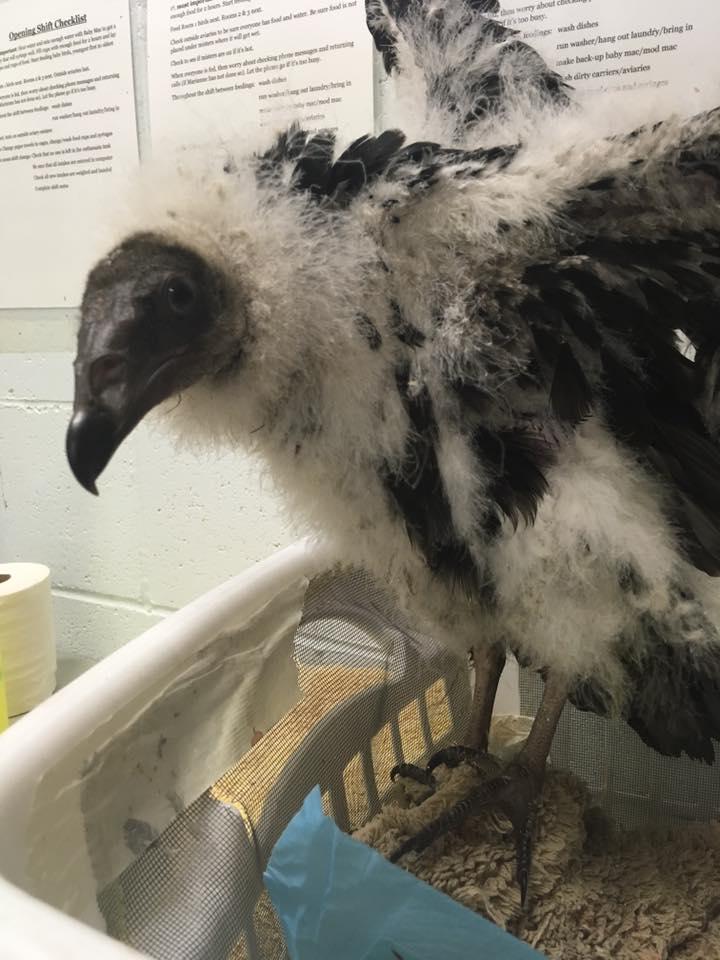
Turkey Vulture
Turkey Vultures are almost exclusively scavengers. Their stomach enzymes are often compared to battery acid. This trait allows them to eat carrion containing harmful bacteria and viruses and thus destroy the disease without causing them harm. Because of this attribute, they have been a protected bird since the early 1900s. If you find a turkey vulture in distress or an abandoned nestling turkey vulture (their heads are dark and fuzzy until they become adults), do not attempt to capture it. Turkey vultures (even the nestlings) can project foul vomit up to 10 feet.
Call our Center at 530-365-9453 or Raven at 530-355-8473.
During our baby bird season (May – August) our Center is normally open from 8am to 8pm. Center operations and hours are currently pending due to COVID-19 precautions. See our COVID-19 page for latest updates.
While our Center is closed you can leave a message at 530-365-9453 as calls are monitored every 2 hours during the off-season from 8am to 8pm.
If you see a dead animal close to the live lane of the roadway, call Cal-Trans at 530-225-3426 to have them remove it. Turkey vultures are often hit by cars when gorging on roadkill. Your call may be saving a turkey vulture’s life.
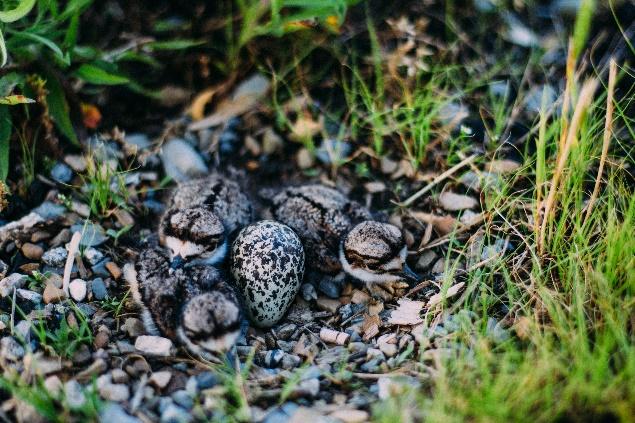
Quail/Killdeer
Quail, like chickens, are considered precocial babies which means that they are ready to run around, eat on their own and follow their parents around. They still need to go under Mom every few minutes to get heated up but once they leave the nest after a couple of days after hatching, they don’t return to it. If you find a baby quail and there are no adults around answering their little calls, this baby does need help. Since the family is constantly on the move finding things to eat and to drink, they may not come back again for several hours or days and by then the baby will not only die from lack of food but from being too cold. Pick up the baby, put it in a secure container (with holes for air), try to keep warm even if the A/C in your car is on and call Kar at 530-917-0930.
The same for killdeer (a shorebird that likes to hang around on green lawns or gravel areas) but they don’t wander as quickly or as far as the quail so if you find a baby killdeer make sure the parents are not around. They tell the babies to freeze in place and they try to distract you from the area by pretending they have a broken wing. If you see that display, please leave the area immediately, making sure to step carefully out of the area so you don’t step on the babies. If it is truly orphaned, do the same as the quail by containing keeping them warm. Call Kar, our quail and killdeer species manager right away at 530-917-0930
During our baby bird season (May – August) our Center is normally open from 8am to 8pm. Center operations and hours are currently pending due to COVID-19 precautions. See our COVID-19 page for latest updates.
While our Center is closed you can leave a message at 530-365-9453 as calls are monitored every 2 hours during the off-season from 8am to 8pm.
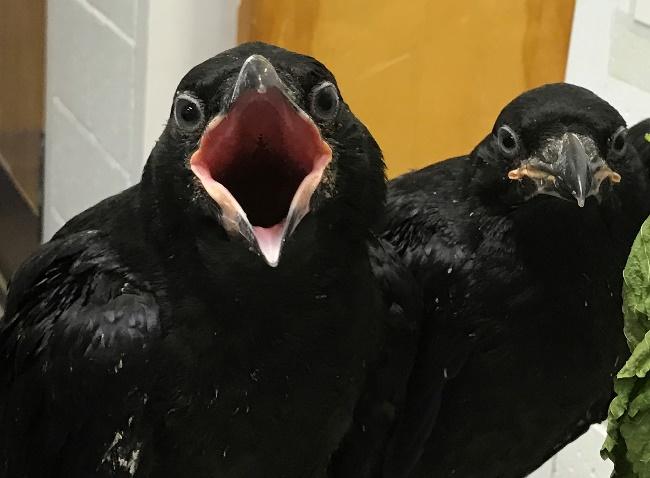
Ravens/Crows/Magpies
If you found a crow, raven, magpie, or jay, you have found a corvid (the taxonomic classification name for their family). These highly intelligent birds desperately need to be with their own kind to learn all the ways to make a living out there in the wild. If you have found a young one and the parents are around croaking, cawing, or squawking at you, please try to renest the baby. Adult corvids are very protective of their young and may try to dive bomb you if you get close to the baby. Given how protective they are, they will still care for the young one if you renest it, and often other members of their family are around helping raise the young. If the bird is injured, the parents do not return to care for them, or renesting is not possible, please put them in a box in a quiet dark place, no longer than overnight and call Raven, our Center Coordinator and corvid expert, right away at 530-355-8473. Please DO NOT ATTEMPT TO RAISE THEM! These particular species of birds are very easily socialized to people, and if that happens then it is impossible for them to survive on their own in the wild where they belong. Raven takes extreme care to minimize any human interaction with these birds during rehabilitation to prevent their dependence on people for food and shelter.
How can you tell a raven from a crow? Crows are smaller with a smaller beak and their call is usually the “caw-caw” sound. They are often in very large family groups known as a murder of crows. Ravens are usually about three times the size of a crow with a much bigger, stronger beak and their call is the “gruck-gruck” sound. Otherwise, in many ways these cousins are quite similar.
Magpies in this area are usually the yellow-billed magpie, and they have beautiful, iridescent feathers on their wings and very long tails if they are adults. They are somewhere between the size of a crow and a scrub jay. They are often found near rivers and streams.
Scrub jays are most prevalent in the lower elevations and Stellar jays are more common in the mountains. Both species of jay are notoriously loud, with blue and gray (Scrub jay) or blue and black (Stellar jay) and the Stellar has a crest on their head that gives them a very unique look.
If you have rescued one of these birds in distress:
Call or text Raven at 530-355-8473
During our baby bird season (May – August) our Center is normally open from 8am to 8pm. Center operations and hours are currently pending due to COVID-19 precautions. See our COVID-19 page for latest updates.
While our Center is closed you can leave a message at 530-365-9453 as calls are monitored every 2 hours during the off-season from 8am to 8pm.
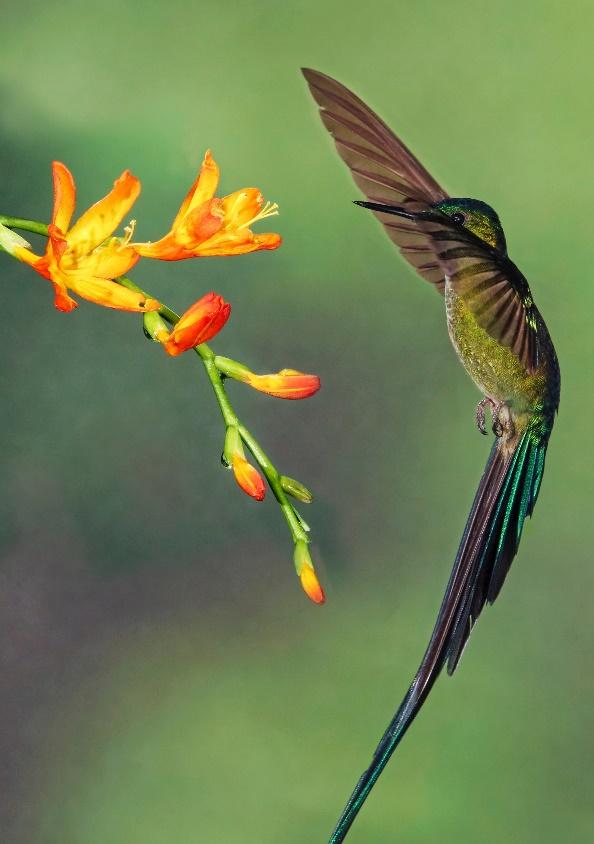
Hummingbirds
Hummingbirds are Nature’s Little Jewels. They nest all year round in our area so when trimming your trees and bushes try to keep an eye out for their little 1 1/2″ soft nest nestled on a branch. They have two eggs and only the female takes care of them. If you accidentally cut the nest down with babies in it, call Kar at 530-917-0930 immediately. Unlike with other birds, you can’t tie the nest back into the same tree because the hummingbird goes back to the exact spot where her nest is. The babies don’t make any sound, unlike other baby birds calling for food, so their mother wouldn’t be able to find them again.
If you find a little fledgling on the ground (fully feathered but not flying well) it’s the baby testing out his or her wings and just didn’t grab onto a branch and fell to the ground.
The mom will feed it on the ground but, of course, predators may find them too. In those cases, pick up the baby and put them as high into a branch or bush as you can, in the immediate area where you found it, and make sure their feet grab onto the little branch. At this stage the fledgling will peep and mom will be able to locate and continue to feed them. If the fledgling continues to fall, something is wrong, so call our hummingbird species manager Kar right away at 530-917-0930.
During our baby bird season (May – August) our Center is normally open from 8am to 8pm. Center operations and hours are currently pending due to COVID-19 precautions. See our COVID-19 page for latest updates.
While our Center is closed you can leave a message at 530-365-9453 as calls are monitored every 2 hours during the off-season from 8am to 8pm.
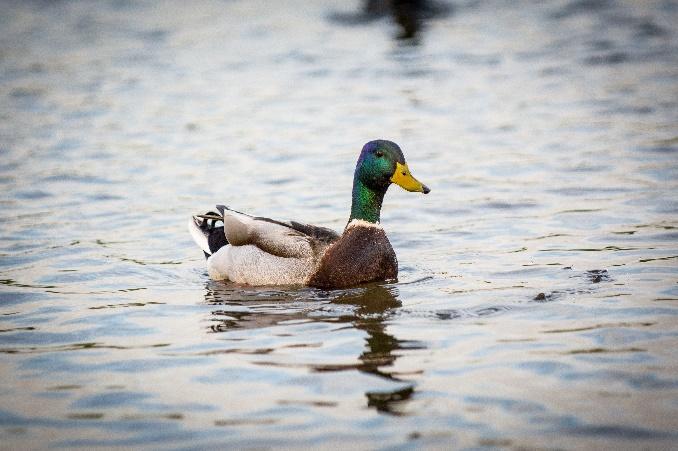
Ducks/Geese
Waterfowl is a term that refers to ducks, geese, and swans. If you have found an injured duck or goose, please place it in a box in a warm dark place and call LeeAnne with Haven Wildcare at 530-941-2125 or 530-223-2553. If you have found baby ducks or geese that you think have been orphaned, please take some time to determine if the parents are still around. If you gather up the ducklings or goslings, please place them in a box, but before you put them in a warm dark place and call LeeAnn with Haven Wildcare, give them a few minutes to make some noise and see if the mother comes to their calls. If the mother is present, please return them to her immediately. If there is no sign of parents around, call LeeAnne. Most importantly with baby ducks and geese, PLEASE KEEP THEM WARM. We all like our air conditioned cars in the summer, but cold temperatures on those babies can mean the difference of survival or death, so please keep them warm until you can get them to LeAnn.
LeeAnn of Haven Wildcare at 530-941-2125 or 530-223-2553
During our baby bird season (May – August) our Center is normally open from 8am to 8pm. Center operations and hours are currently pending due to COVID-19 precautions. See our COVID-19 page for latest updates.
While our Center is closed you can leave a message at 530-365-9453 as calls are monitored every 2 hours during the off-season from 8am to 8pm.
Small Mammals Low Risk
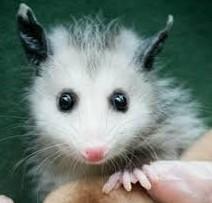
Opossums
Opossums, the only marsupial found natively in the United States, thrive in diverse climate conditions throughout North America. With such a varied diet they can eat the garbage out of your trashcan or pilfer the food you meant for your outdoor companion animal. But before you consider them a pest, know that they are not only eating your garbage but also snails, ticks, and other invasive bugs that can do a lot more damage than these ferocious-looking yet docile animals.
If you happen upon a lone baby, they may be an orphan or have already left their mother. They can make a living on their own when they are about the size of a dollar bill.
If the baby is smaller than that and on their own, look for more babies and evidence of their potentially deceased mother.
When you have them gathered up, call Kar at 530-917-0930
If you discover a dead opossum with babies in her pouch, carefully pick up the mother and put her in a towel or box. Call our small mammal expert, call our small mammal expert, Kar, right away 530-917-0930
During our baby bird season (May – August) our Center is normally open from 8am to 8pm. Center operations and hours are currently pending due to COVID-19 precautions. See our COVID-19 page for latest updates.
While our Center is closed you can leave a message at 530-365-9453 as calls are monitored every 2 hours during the off-season from 8am to 8pm.
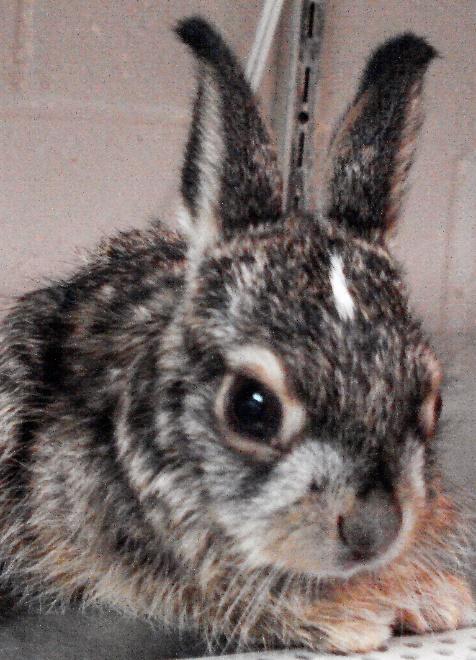
Rabbits/Hares
Jack rabbits are hares and brush bunnies are rabbits. Jacks are born fully furred and bunnies are born naked. What they do have in common is that their mother hides them while she is out foraging. She only feeds them twice a day (at dawn and dusk). Another difference is that mother jacks leave their babies out in the open in different places but bunnies build a nest and keep them together. Either way, if you call us about a rabbit, you will likely be told to put the bunny back.
Seemingly orphaned and helpless jackrabbits and brush bunnies are almost always exactly where they’re supposed to be.
So please, put the bunny back unless:
- They were dog- or cat-caught
- They are obviously injured
- Their mother died
Please do not attempt to give them food or water. Without training, attempting either of these things will almost certainly result in the hare’s or rabbit’s death.
Call our small mammal expert, Kar, right away 530-917-0930
During our baby bird season (May – August) our Center is normally open from 8am to 8pm. Center operations and hours are currently pending due to COVID-19 precautions. See our COVID-19 page for latest updates.
While our Center is closed you can leave a message at 530-365-9453 as calls are monitored every 2 hours during the off-season from 8am to 8pm.
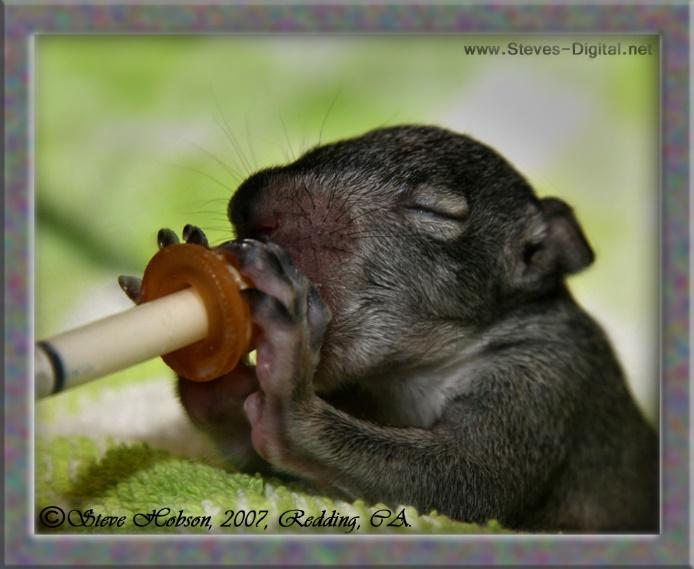
Squirrels/Chipmunks
Squirrels have babies twice in a year. The first litter comes in late February and the second in late July. Most of our squirrel/chipmunk patients are orphaned babies. How do you know if they are truly orphaned?
Click the link below to learn more
If the baby squirrel runs up to you, they are desperate because they are hungry and have been on their own for a while. Please call us right away. Do not attempt to feed or give water to the baby. They do not have the skills to lick properly and can accidently fill their lungs with fluid or chunks of food.
If you attempt to renest them but the mother does not return, please call:
- Janeain: 509-675-1858
- Kar: 530-917-0930
During our baby bird season (May – August) our Center is normally open from 8am to 8pm. Center operations and hours are currently pending due to COVID-19 precautions. See our COVID-19 page for latest updates.
While our Center is closed you can leave a message at 530-365-9453 as calls are monitored every 2 hours during the off-season from 8am to 8pm.
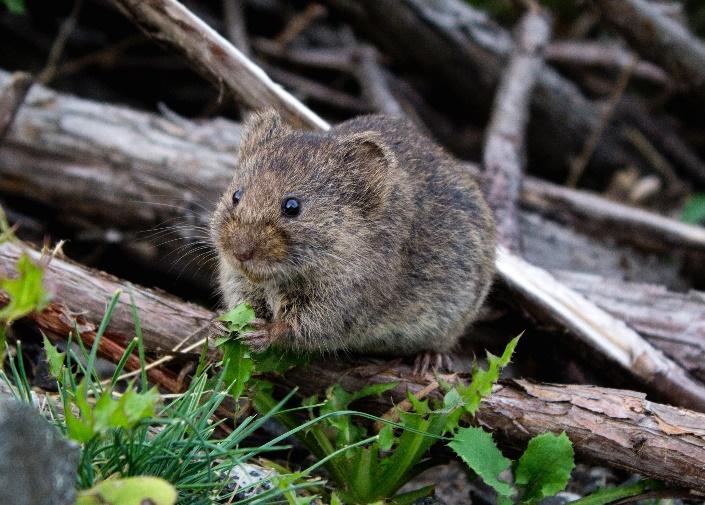
Other Small Rodents
Shasta Wildlife also rehabilitates gophers. They are an important part of the balance of our ecosystem. In our conservation efforts we treat all our patients with compassionate care, including these critters that so many consider to be pests.
So, if you find injured gophers:
Call our Center at 530-365-9453.
During our baby bird season (May – August) our Center is normally open from 8am to 8pm. Center operations and hours are currently pending due to COVID-19 precautions. See our COVID-19 page for latest updates.
While our Center is closed you can leave a message at 530-365-9453 as calls are monitored every 2 hours during the off-season from 8am to 8pm.
Mammals High Risk
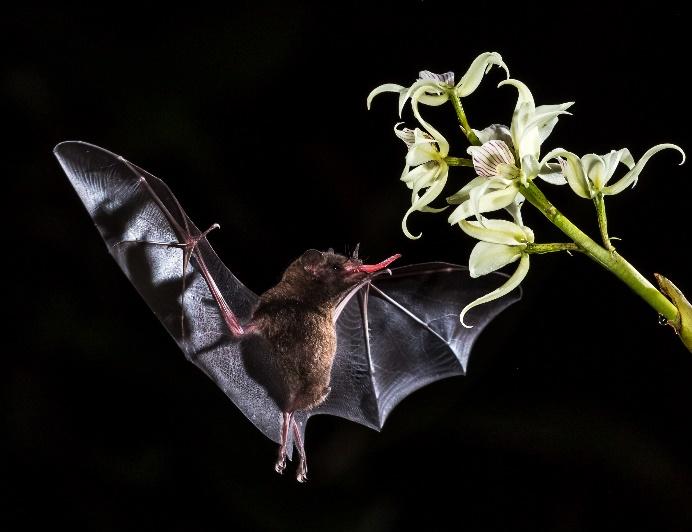
Bats
Bats are a protected species and thus it is unlawful to harm them.
If you discover a bat flying in your home you can simply open a door and they will soon find their way out. If you find and injured or orphaned bat please do not pick them up with your bare hands. Bats can carry rabies and if bitten you may not know it as their teeth are very small.
Rabies is 100% preventable (by simply wearing gloves) but is 100% fatal if contracted.
If you suspect that you have been bitten, call the public health office in your county right away!
Because bats are a rabies vector species, please do not bring them to our Center. Many of our volunteers do not have the pre-exposure vaccination and for their protection, we respectfully request that you meet with a volunteer at an offsite location.
Please call one of the following based on your location:
Siskiyou County – Susan Thomas (of Shasta Wildlife) 530-941-3001
Shasta County – Shasta Wildlife 530-365-9453
Or visit Animal Help Now at ahnow.org to find a wildlife rehabilitation facility in your area.
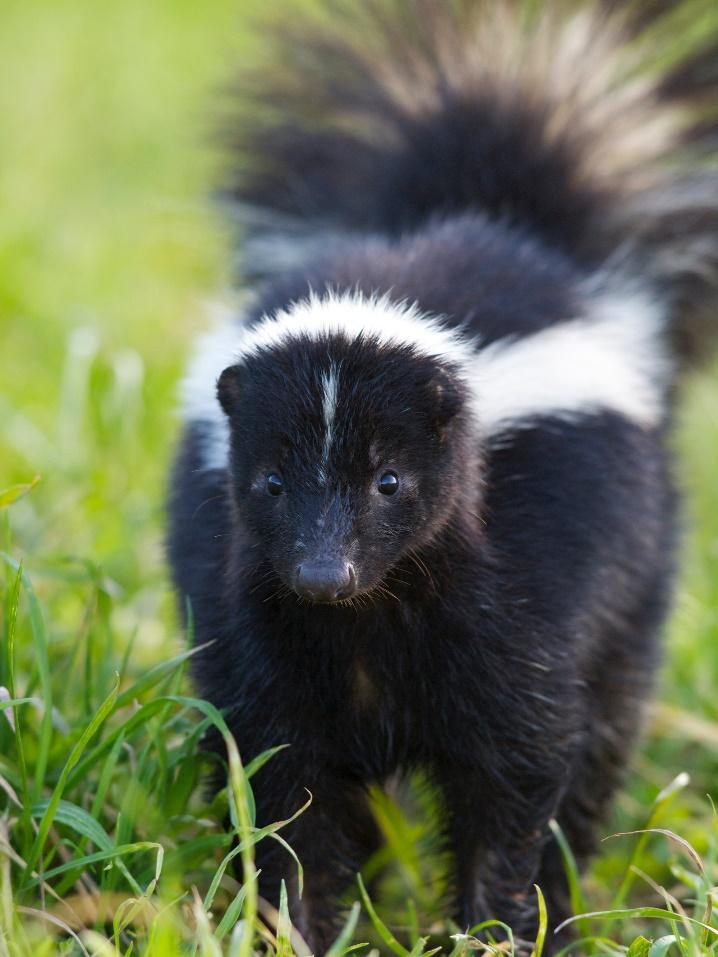
Skunk
Although skunks are nocturnal, it is not uncommon to see them out during the day. This behavior does not necessarily mean they have rabies.
However, skunks do carry the rabies virus, so if you find an injured or orphaned baby skunk, please do not pick it up with your bare hands.
Rabies is 100% preventable (by simply wearing gloves) but is 100% fatal if contracted. If you suspect that you have been bitten, call the public health office in your county right away!
Because skunks are a rabies vector species, please do not bring them to our Center. Many of our volunteers do not have the pre-exposure vaccination and for their protection, we respectfully request that you meet with a volunteer at an offsite location.
Please call one of the following based on your location:
Siskiyou County – Susan Thomas (of Shasta Wildlife) 530-941-3001
Or visit Animal Help Now at ahnow.org to find a wildlife rehabilitation facility in your area.
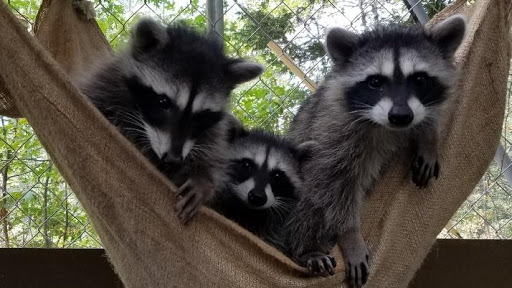
Raccoon & Ringtail
If you find a raccoon or ringtail baby, you may be tempted to try to raise them as a pet. This is a bad idea for so many reasons. It is highly unlawful as well as highly unethical, and it is far, far more work than you may think. They are not only rabies vector species, but almost all raccoons carry raccoon roundworm, a deadly nematode that sheds in their feces. The worm is very prolific and extremely difficult to kill. When we clean a raccoon enclosure after release, we have to torch the soil 6″ deep just to prevent roundworm contamination.
Raccoon roundworm is fatal to humans. If you accidently ingest one, it grows in your spinal column causing a slow, painful death, and there is no cure.
If you suspect that you have been bitten by a raccoon, call the public health office in your county right away!
Because raccoons are a rabies vector species, please do not bring them to our Center. Many of our volunteers do not have the pre-exposure vaccination and for their protection, we respectfully request that you meet with a volunteer at an offsite location.
Please call one of the following based on your location:
Siskiyou County – Susan Thomas (of Shasta Wildlife) 530-941-3001
Shasta County – LeeAnn Smith 530-941-2125
Or visit animal help now at ahnow.org to find a wildlife rehabilitation facility in your area.
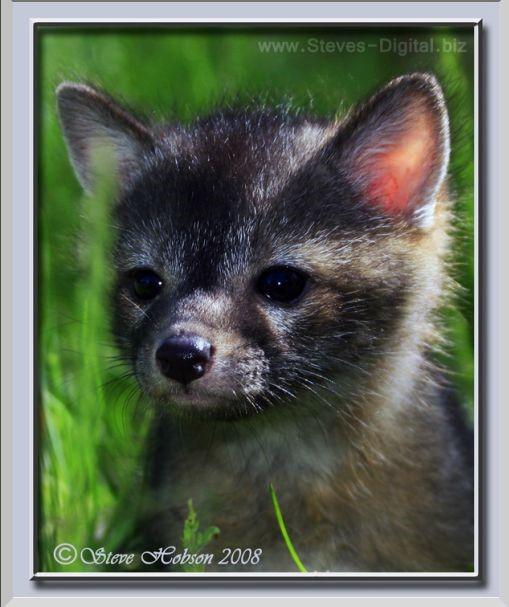
Fox/Coyote
If you find an injured fox or coyote, do not attempt to capture it unless you are prepared with Kevlar lined gloves and a carrier because they will likely try to bite you upon capture.
If you find orphaned cubs it is also necessary to wear thick gloves upon capture as these animals are rabies vector species. The fox in the picture was euthanized to test him for rabies (the test requires a cross-section of the brain) because the little girl who brought him in had the fox in her arms.
We are required by law to notify public health of anyone that has had contact with a rabies vector animal AND we are also required to euthanize them and prepare them for testing. So, please do not handle nor let your children handle fox, coyote, or any other rabies vector species. When handled properly, then brought to us, we have very good success with the rehabilitation and do release them back to the wild where they can live out the life they were meant to live.
Rabies is 100% preventable (by simply wearing gloves) but is 100% fatal if contracted.
If you suspect that you have been bitten, call the public health office in your county right away!
Shasta Wildlife Rescue & Rehabilitation, Inc. is not able to rescue, rehabilitate or take possession of BEARS, BOBCATS, COYOTES OR MOUNTAIN LIONS.
WHO TO CONTACT FOR ASSISTANCE:ahnow.org/resources.php for general assistance and referrals California Department of Fish and Wildlife at 530-225-2300 or askregionl@wildlife.ca.gov
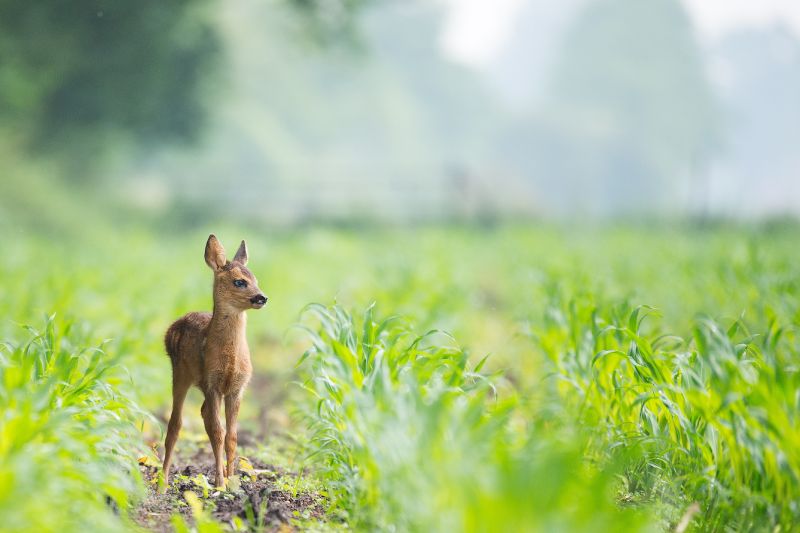
Fawn
All injured fawns or deer should be reported to Fish and Wildlife after August as we can not take fawns larger than 10 pounds or 3 weeks of age.
If near a roadway the CHP must be informed.
We can not treat severe injuries or broken legs.
If you have found a fawn that you believe is orphaned, first remember that mother deer will leave the baby in a safe place while they forage for food, then return to nurse the babies. If a fawn is sitting quiet in an area, it is likely doing exactly as it is supposed to. If you sincerely believe the fawn is orphaned or have evidence that the mother is deceased, you will need to call Rebeccah at 530-227-5401. She will have many questions for you concerning the fawn before she wants you to do anything. Please leave her a message if she does not answer. She WILL call you back. She is very devoted to her work with the deer and will answer you. Please remember also that through experience, she can assess a great deal about the situation via the phone.
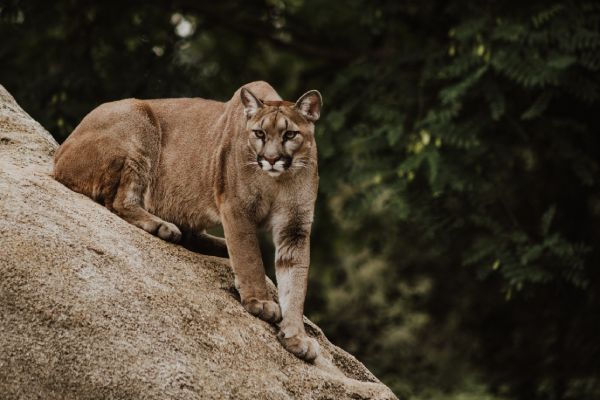
Large Game/Mountain Lion/Bobcat/Bear
If you find an injured or orphaned deer or fawn, please see the “fawn drop-down” on the page.
If you find an injured or orphaned large game, mountain lion, bobcat, or bear, please contact the California Department of Fish and Wildlife. Shasta Wildlife does not rehabilitate these animals.
CA F&W 530-225-2300



